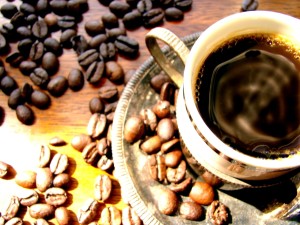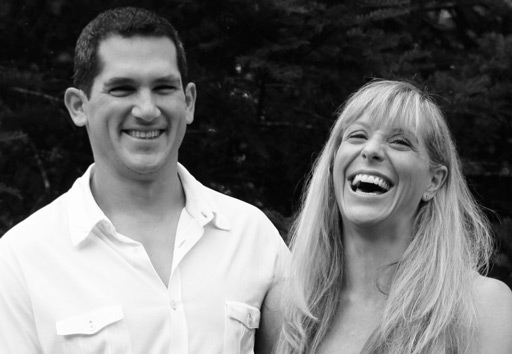Most people love the smell of coffee even if they don’t drink it. Just behind sunrises, or just ahead depending on who you ask, coffee has the strongest association to mornings. People often reach for a cup of Joe without a thought as if it is as vital to starting the day as is getting out of bed. Often that first sip is enjoyed but less awareness goes into the effects of a morning brew beyond that. However, a mindful coffee approach can yield insights into making it work for you best.
The history of coffee is long and complex with first reports dating back to Ethiopia in the 10th century and recorded use as a drink dating back to the 15th century. Today coffee is drunk by 150 million Americans with the industry worth $18 billion a year.
It’s obviously widespread and big business but is coffee good or bad for your health?
I don’t want to get into a debate that has perpetuated for years and is supported on either side by a host of studies.

Instead, let’s get to bare bones of the good, the bad and the ugly of coffee and then move on to Mindful Coffee Strategy.
The Good
Recent studies have shown coffee can be good to protect against:
- Parkinson’s disease
- type 2 diabetes
- liver disease
- certain cancers
It also has been shown to:
- boost cognitive function
- reduce the risk of depression
The Bad
- The clearest answer is that drinking two or more cups a day seems to increase health risks in people who have a common genetic mutation that causes them to metabolize caffeine slower.
- There is also evidence that unfiltered and boiled coffee have health risks that don’t show up for single cup drinkers of filtered coffee.
- The addition of low-quality creams, sugar and mostly, artificial sweeteners and creamers can take a coffee into the realm of being a high calorie, microbiome disrupting health concern.
- Heavy coffee drinkers also tend to partake in other high-risk behaviors like smoking and a sedentary lifestyle. (Note: This is merely correlation and doesn’t incriminate coffee in and of itself).
The Ugly:
- Mycotoxins can be harmful in higher doses. While become obsessed with finding coffee with ZERO mycotoxins is unreasonable and the cause of more stress than it’s worth, poorly farmed and prepared coffee is a cause for concern. From higher levels of this mold to unclean water and stale brew, grabbing a bad cup of Joe can make you sick and it’s not worth it.
- Coffee’s caffeine elevates catecholamines. These stress hormones, such as cortisol, increase inflammation and take a toll on the HPA axis. If you already are suffering from adrenal fatigue, high stress, other inflammatory conditions or hormonal imbalance this will make things worse.
- Regular caffeine intake creates a physiological addiction. Ask any regular caffeine user what happens when they take a break from daily use. Withdrawal includes headaches, jitters, lack of focus, irritability and more.
If you were following along you probably picked up that coffee can have significant health benefits but keeping the quantity to a minimum and the quality to a maximum is key to its value. This is where mindful coffee can make all the difference.
Maybe you’ve decided that you are going to continue (or maybe start) to drink coffee. Before you lock down, here’s some other options:
- Cordyceps Sinensis: Bree has crafted this delicious, nutritious and stimulating brew that offers anything you’re looking for in coffee, without the acidity, and with a lot more antioxidant properties. She wrote a detailed article about its history, benefits and a recipe here. After trying a whole bunch of different brands of cordyceps, some actually have gluten in them, we swear by Sigma Four who also have a whole bunch of other amazing mushrooms that are magic for your health.
- Yerba Mate: Made from the leaves of a South American rainforest tree and provides a balanced stimulation and significant nutritional value. The leaves contain 24 vitamins and minerals, 15 amino acids, and lots of antioxidants. When I’m writing, especially creatively, I use this brand to get the ideas flowing and the focus up. I sip it the traditional way, out of a gourd with straw. I also like their cold brews as a treat – way better than any energy drink.
- Green Tea: Well-known for its health benefits and antioxidant properties, you can find this in quality multi-vitamins as well as enjoying it as a drink on its own. Get a quality one that tastes good too, like this one.
- Three-pronged Morning Blast: This is my K.I.S.S. (Keep It So Simple) solution. Get up, step outside into the fresh air and sunlight while you drink down a tall glass of clean water with a tablespoon of apple cider vinegar mixed in, then have a cold shower and… Voila! You’re awake: mind, body, and spirit!
Okay, you’ve tried all of the above and you’ll never drink coffee again… 😎
Or more likely, coffee is something that you will never give up. Fine.
Let’s make it a Mindful Coffee:
The key to keeping coffee healthy, if you aren’t negatively predisposed to caffeine (like Bree is) or have another condition that rules it out completely, is to have the minimum effective dose. This really means focusing on quality and not quantity. Aim for one great cup of mindful coffee by following this guide:
- Instead of rushing to start your day with that first cup, embrace the waking process and allow yourself to gain some natural alertness. This can be achieved by exposure to natural light, fresh air (especially cool and clean), some movement and/or stretching, some uplifting music or sounds, a glass of warm water with half an organic lemon squeezed in or just utilize the C.R.E.A.T.E. Your Day Method to start your day right.
- Now that you are more awake, you might find you don’t need coffee at all. Before you go into an automatic “must drink coffee” mode, gauge where you are at. It might be more effective and enjoyable to have that coffee an hour or two later at that strange thing called…”a coffee break” 😛
- Drinking coffee when your cortisol levels are not at their natural peak will give you more alertness. Generally speaking, cortisol peaks around 7:00 am and then starts to dip throughout the morning. If you want the most alertness with the minimum effective dose, hit it between 10 am and 11 am. If you wait too much longer, the caffeine can potentially interfere with getting to sleep.
- Make that mindful coffee count. Enjoy the art of the brew by picking quality, organic, fair trade coffee. If you can, use fresh beans that are stored away from light and air. Grind them just before brewing. I and a whole bunch of other more sophisticated coffee drinkers praise the French press as a simple but great way to get the best coffee. It falls in line with minimum effective dose as well.
- Use a classy mug that isn’t going to invade your mindful coffee with toxins, i.e., avoid styrofoam, plastic, and other substances that alter the taste. I love using one of the artisan pottery mugs that we’ve collected over the years. You can usually find one at a farmer’s market or a boutique art shop/studio. It adds to the experience – trust me.
- If you are going to add things to this coffee make sure they don’t alter it in negative ways. A good bean well-brewed can be great black. If you can’t handle that, try adding a tablespoon or two of butter from grass-fed cows and even a teaspoon of MCT oil and blend it up. This “keto-coffee” will provide a more stabilized, longer lasting energy that increases mental functioning, mood, and fat burning effects. If you need it sweeter, I would add a little stevia. If stevia isn’t your thing, I’ve enjoyed adding a little high-quality chocolate whey from grass-fed cows for a mocha protein mindful coffee.
- Most importantly, enjoy it. This is what truly makes it a mindful coffee. Avoid mindlessly gulping it down but sip it and savor it. Feel it’s warmth and notice how it affects you. You will get more out of it, understand your relationship with it more and perhaps, discover things you didn’t realize before.
- Finally, pay attention to how your energy, mood and focus changes and for how long. Take note and do yourself a favor, go a few days without coffee and then on the third or fourth day out, pay attention to the same things. A mindful coffee and a mindful non-coffee might yield clarity on the best way for you to optimize your mornings and days.
If you keep coffees to every other day or less, than they can be an enjoyable part of your health routine and not a crutch or automaton response to waking up.
If this makes sense, tweet this: Take control of the morning: instead of being controlled by your coffee, have a mindful coffee experience #mindmuscle Click To Tweet
Have I convinced you to give up coffee? To start drinking it? To change how you approach it? To try any of the alternatives? Or is it something you’re set on? Let me know.

